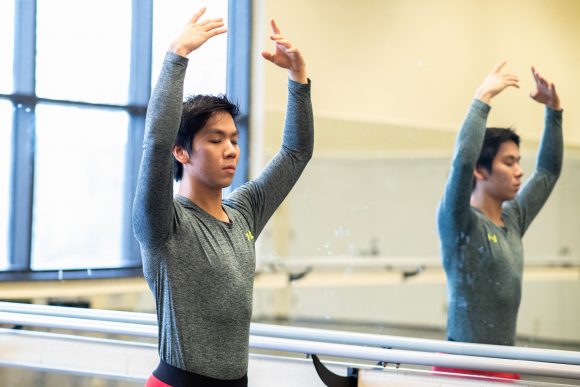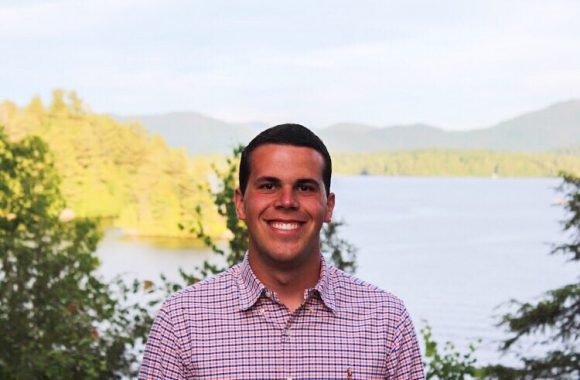Leanne Tan
Student Writer
Ever since he was little, senior middle education major Tyler Pursell knew he wanted to teach. Inspired by his teachers and family members who were in the education field, Pursell came to realize how influential teachers can be and hoped to be like them one day.
With men making up only 21.5 percent of elementary and middle school teachers in the U.S., according to Boston Globe, Pursell faces a high possibility of being a minority in a predominantly female work setting.
In addition to elementary and middle education, other female-dominated fields include social work, nursing and dance.
Being in the minority comes with its own set of challenges. As one of the only male students in his major, Pursell feels different at times and even thought about changing majors when he first started college.
“Guys usually go into engineering, medicine and sports – none of what I was doing,” Pursell said. “I felt a little self-conscious about that and what people saw.”
However, Pursell’s perception started to change once he began his field experiences where he saw how much of an impact male teachers can have on their students.
Like Pursell, junior nursing major Trent Johnson initially felt uncomfortable being one of the only guys in his major. But after spending almost three years in the nursing program, it has become second nature to him.
Johnson also encounters some challenges when dealing with patients at his clinical site. “Certain patients don’t want a male nurse in the room; they prefer female nurses,” Johnson said.
For sophomore dance major Ryan Wong, a challenge he faced his first year was having to keep up with his female counterparts and pick up ballet – a style he had zero experience in prior to college.
“I’m doing a style that these girls have had experience or training in since they were young. I came in at 18 years old with no ballet technique whatsoever and I have to do what they do,” Wong said. “So, cramming over 16 years of ballet technique into two semesters … that was definitely a challenge.”
Hailing from Malaysia, Wong made his debut in the dance world with hip-hop at the age of 14. Little did he know that he would end up learning ballet as part of his college academic program.
As a child, Wong saw ballet as a feminine activity since it wasn’t unusual for girls to take ballet lessons. Boys, on the other hand, typically attended karate or soccer classes.
“I was that kid who went, ‘oh my gosh, ballet is for women and not for men!’” Wong said.
Now, having learned ballet at college, Wong has developed a completely different view on the dance style.
“Learning ballet made me realize how strong a guy has to be to pull off what male ballet dancers pull off on stage,” Wong said. “I’ve let go of the mentality that ballet is [only] for women because I don’t think that’s right. I think ballet is for everyone.”
As one of only two males in his major, Wong attributes the lack of male representation in ballet and dance industries mainly to gender stereotypes revolving around the art form.
“We grew up with the stigma that ballet is for women,” he said. “But if you went back and studied how ballet came about, ballet was made for men and only later did women become part of the ballet culture.”
Similar to Wong, Pursell believes a large part of why women constitute the majority of elementary and middle school teachers is due to assumptions about gender roles when it comes to working with children.
“Education is such a stereotypical female field because people see it as, ‘oh, females are good with kids,’” Pursell said. “You don’t often see males as the ones who jump into work with kids; that’s normally a female thing. But again, it has a lot to do with generalizing and stereotyping.”
One of Pursell’s goals is to set a good example for younger boys, which he hopes to achieve through teaching.
“There are a lot of hurting kids that don’t have fathers or positive male role models in their lives,” Pursell said. “Especially in the harder schools, a lot of adolescent boys are seeing toxic things in society that they think they have to live up to. I want to show them what it actually looks like to be a male in society and what that means in a positive way.”
For Johnson, his ultimate goal is to apply what he learns at college in the mission field.
“I’d love to be a missionary and work overseas living among a people group that’s in need of medical assistance,” Johnson said.
Wong hopes to inspire future generations to chase after their dream with his career. He advises everyone to not allow gender stereotypes to stop them from doing what they want.
“Find what you’re truly passionate in,” Wong said. “Doesn’t matter if it’s female-dominated or male-dominated, if that’s what you want to pursue, pursue it.”



